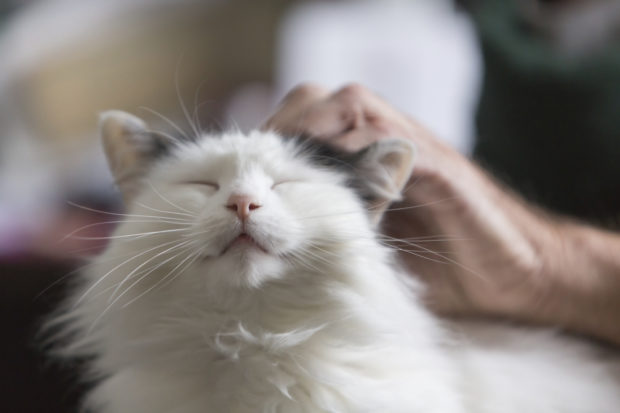Cats can transmit COVID-19 to other cats, but not to humans — study

Image: Christine Glade/Istock.com via AFP Relaxnews
According to a new study published on Wednesday, cats can become infected with SARS-CoV-2, the virus that causes COVID-19, and may be able to pass the virus to other cats but not to humans.
Carried out by researchers at the University of Tokyo, the National Center for Global Health and Medicine and the National Institute of Infectious Diseases in Japan along with the University of Wisconsin in the United States, the new study looked at three cats in a lab setting who were given SARS-CoV-2.
The next day, a cat without SARS-CoV-2 was introduced to each of the cats to see if the virus would be transmitted between them by direct contact.
After taking swabs from all six cats the researchers found that within two days one of the previously uninfected cats was shedding the virus. Within six days, all of the cats were shedding virus, and continued to do so for up to six days. The good news is that the virus was not lethal, none of the cats showed any symptoms of the illness, and all of the cats recovered from having the virus.
“That was a major finding for us — the cats did not have symptoms,” commented lead author Yoshihiro Kawaoka.
The results, published in the New England Journal of Medicine, are in line with a previous study by scientists at the Chinese Academy of Agricultural Sciences, which showed that cats, and also ferrets, could become infected with and potentially transmit the virus.
“It’s something for people to keep in mind,” says Peter Halfmann, who helped lead the study. “If they are quarantined in their house and are worried about passing COVID-19 to children and spouses, they should also worry about giving it to their animals.”
The researchers also point out that humans are still the biggest risk to other humans in terms of transmission, not cats. They add that there is no evidence that cats transmit the virus to humans and no documented cases of humans becoming ill with COVID-19 because of contact with cats.
However, there are confirmed cases of cats becoming infected with the virus due to close contact with infected humans, and so Kawaoka and Halfmann advise that if you have symptoms of COVID-19, avoid contact with cats.
They also advise cat owners to keep their pets indoors, in order to limit the contact their cats have with other people and animals.
Ruthanne Chun, associate dean for clinical affairs at UW Veterinary Care, also offered some advice to pet owners, saying that if your pet lives indoors with you and is not in contact with any COVID-19 positive individuals, then it is safe to continue stroking, cuddling, and interacting with your cat.
However, if you show signs of or are COVID-19 positive, then limit contact with your pets to protect them.
“As always, animal owners should include pets and other animals in their emergency preparedness planning, including keeping on hand a two-week supply of food and medications,” she says. “Preparations should also be made for the care of animals should you need to be quarantined or hospitalized due to illness.” IB
RELATED STORIES:
LOOK: Animal shelter emptied after every pet gets adopted amid COVID-19
Animals at Singapore’s wildlife parks monitored for signs of COVID-19
For more news about the novel coronavirus click here.
What you need to know about Coronavirus.
For more information on COVID-19, call the DOH Hotline: (02) 86517800 local 1149/1150.
The Inquirer Foundation supports our healthcare frontliners and is still accepting cash donations to be deposited at Banco de Oro (BDO) current account #007960018860 or donate through PayMaya using this link.